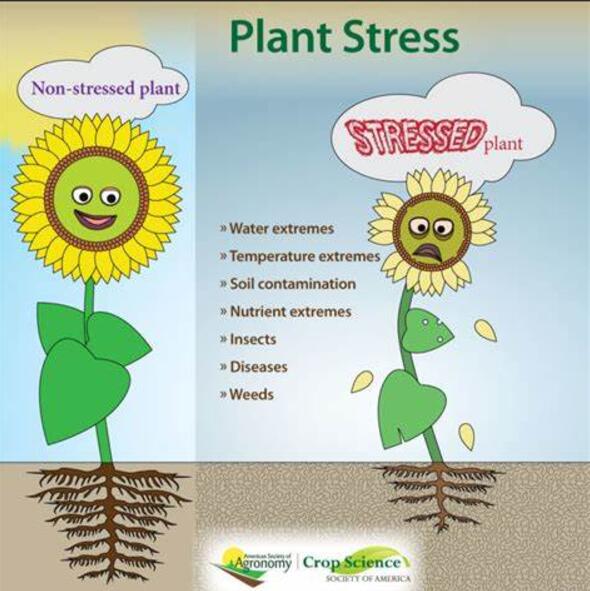通过 CRISPR-Cas 介导的农作物基因组编辑技术提高生物胁迫耐受性
IF 6.8
Q1 PLANT SCIENCES
引用次数: 0
摘要
植物不断受到大量植物害虫和病原体的挑战,全球农业生产率和粮食安全岌岌可危。几十年来,农业领域开发了各种策略来克服植物病虫害。化学防治依然有效,但涉及严重的生态和环境问题,传统和转基因育种策略主要用于培育具有新基因突变的新品种。虽然这些策略在植物发展中发挥着关键作用,但在一定程度上,它们通常包括大量劳动密集型过程。CRISPR-Cas 技术是一种基因组编辑工具,它为加速植物育种开辟了新途径,可在多种植物中产生抗病虫害能力。CRISPR-Cas 限制了生物胁迫造成的产量损失,最大限度地减少了对杀虫剂的依赖,从而彻底改变了农业。在此,我们总结了 CRISPR-Cas 技术的进展以及该技术在作物抗病虫害开发中的应用。此外,本综述还讨论了 CRISPR-Cas 基因组编辑技术在农作物中的优势和问题。本文章由计算机程序翻译,如有差异,请以英文原文为准。
Engineering biotic stress tolerance via CRISPR-Cas mediated genome editing in crop plants
Plants are incessantly challenged by a plethora of plant pests and pathogens, putting global agricultural productivity and food security at stake. Over several decades, various strategies have been developed in agriculture to overcome plant diseases and insect pests. With chemical control that remains effective but involves severe ecological and environmental concerns, conventional and transgenic breeding strategies have been primarily deployed to generate new varieties with novel genetic mutations. Though these strategies present a pivotal role in plant development, in part, they normally include extensive and labor-intensive processes. CRISPR-Cas technology, a genome editing tool, has opened new avenues to accelerate plant breeding by creating disease and pest resistance in a wide range of plants. CRISPR-Cas revolutionized agriculture by limiting yield losses due to biotic stress and minimizing reliance on pesticide usage. Here, we summarize the advances of CRISPR-Cas technology and the applications of this technology in disease and pest resistance development in crop plants. In addition, the review also discusses the advantages and concerns of CRISPR-Cas genome editing in crop plants.
求助全文
通过发布文献求助,成功后即可免费获取论文全文。
去求助
来源期刊

Plant Stress
PLANT SCIENCES-
CiteScore
5.20
自引率
8.00%
发文量
76
审稿时长
63 days
期刊介绍:
The journal Plant Stress deals with plant (or other photoautotrophs, such as algae, cyanobacteria and lichens) responses to abiotic and biotic stress factors that can result in limited growth and productivity. Such responses can be analyzed and described at a physiological, biochemical and molecular level. Experimental approaches/technologies aiming to improve growth and productivity with a potential for downstream validation under stress conditions will also be considered. Both fundamental and applied research manuscripts are welcome, provided that clear mechanistic hypotheses are made and descriptive approaches are avoided. In addition, high-quality review articles will also be considered, provided they follow a critical approach and stimulate thought for future research avenues.
Plant Stress welcomes high-quality manuscripts related (but not limited) to interactions between plants and:
Lack of water (drought) and excess (flooding),
Salinity stress,
Elevated temperature and/or low temperature (chilling and freezing),
Hypoxia and/or anoxia,
Mineral nutrient excess and/or deficiency,
Heavy metals and/or metalloids,
Plant priming (chemical, biological, physiological, nanomaterial, biostimulant) approaches for improved stress protection,
Viral, phytoplasma, bacterial and fungal plant-pathogen interactions.
The journal welcomes basic and applied research articles, as well as review articles and short communications. All submitted manuscripts will be subject to a thorough peer-reviewing process.
 求助内容:
求助内容: 应助结果提醒方式:
应助结果提醒方式:


